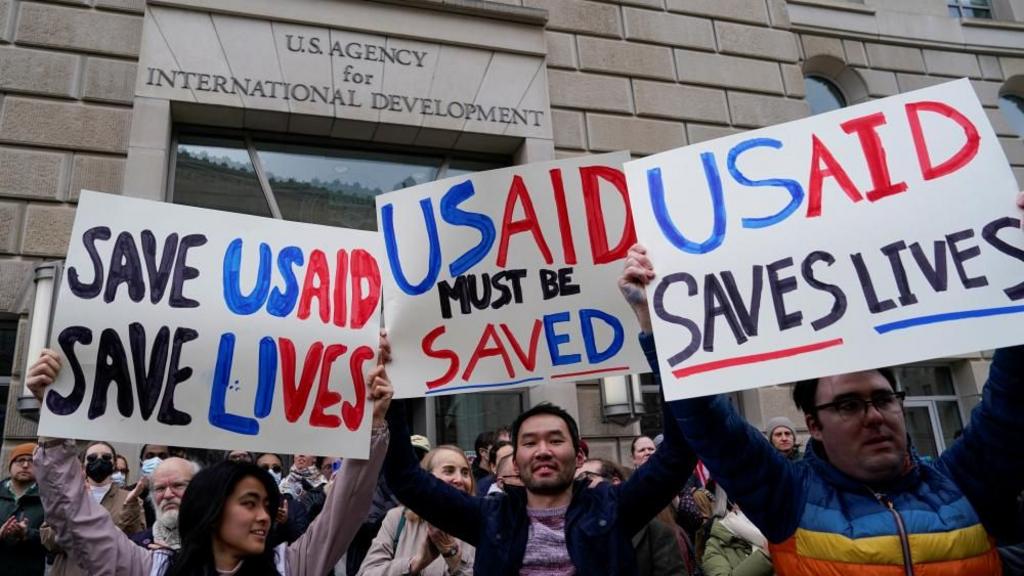
NGOCSTIP – Rising crime and trafficking feared after the US halted foreign aid to several regions. Experts warn of increasing dangers for vulnerable populations. The decision to freeze foreign assistance for 90 days has sparked serious concerns. Many organizations combating human trafficking now face funding shortages. Victims of trafficking and scams may suffer without necessary support.
Abdus Salam, a textile engineer from Bangladesh, sought a better future in Cambodia, hoping for new opportunities. A recruiter promised him a high-paying job as a computer operator, which seemed like the perfect solution. However, once he arrived, traffickers took him to a cyber scam compound in Dara Sakor, where his reality quickly changed. Instead of the job he was promised, Salam was coerced into manipulating victims into fraudulent cryptocurrency investments.
To make matters worse, different compound owners bought him three times, further entrenching his captivity. Physical abuse and forced labor became routine in these compounds, with traffickers using brutal tactics. They beat Salam with baseball bats and subjected him to electric shocks, constantly reinforcing their control. Moreover, they confiscated his passport, making escape nearly impossible.
Fortunately, the Global Anti-Scam Organisation intervened, helping him escape from the compound. Now, as a survivor, Salam dedicates his time to assisting other trafficking survivors through Humanity Research Consultancy, using his experience to support those in need.
US President Donald Trump issued an executive order to freeze foreign aid. This policy aims to reassess whether aid aligns with “America First” interests. The move has affected numerous anti-trafficking and humanitarian initiatives. Projects focusing on intelligence gathering and survivor support are now in jeopardy. Organizations working in high-risk areas struggle to continue operations.
Michael Brosowski, the founder of Blue Dragon, warns of expanding trafficking networks. Criminal groups, in particular, have shifted tactics to exploit digital platforms. Consequently, traffickers use social media to lure victims into scam operations. As a result, recruited victims receive false job offers in Thailand and Myanmar. This new approach, in turn, allows traffickers to operate at an industrial scale.
In response to this growing threat, Blue Dragon developed community-based prevention programs. Through these initiatives, local leaders and police officers work together to identify risks and take preventive measures. However, funding cuts have now put these efforts at significant risk. Without proper support, it is clear that trafficking prevention efforts will be severely impacted.
Freedom Collective, an anti-trafficking NGO, faces an 85% budget reduction. CEO Julia Macher highlights the struggle to fund rescue missions. The organization coordinates with law enforcement to dismantle scam operations. The funding freeze has made financial investigations and legal actions difficult.
Raising funds in authoritarian regions remains dangerous and challenging. USAID provided crucial resources to fight human trafficking. The loss of this aid weakens global efforts against modern slavery. Without financial support, survivor assistance and law enforcement collaboration will suffer.
“Read more: Meghan Markle Upset Over Not Being Recognized as a True Hollywood Star”
The Chin Human Rights Organisation reports worsening conditions in Myanmar. Thirty percent of their funding has been affected by the aid freeze. Staff layoffs and reduced operations hinder their ability to document abuses.
Ongoing conflict in Myanmar has displaced many people. These vulnerable populations face a higher risk of falling into trafficking networks. Aerial attacks force civilians to seek refuge in other countries. Many entrust their lives to traffickers, increasing their risk of exploitation.
Cyber scams and human trafficking are rapidly becoming growing global security threats. Criminal networks, in fact, now operate at a scale never seen before. As a result, many victims targeted by scams are in the US and Australia. In 2023 alone, Australians lost a staggering $2.7 billion to scams, highlighting the scope of the problem.
Asian transnational crime expert Jacob Sims refers to this as the fastest-growing crime, stressing the urgency of addressing it. Without timely intervention, trafficking and scam operations will inevitably continue expanding. Moreover, the loss of aid funding further weakens international efforts to combat these crimes. Consequently, the consequences extend far beyond Asia, impacting global security as a whole.